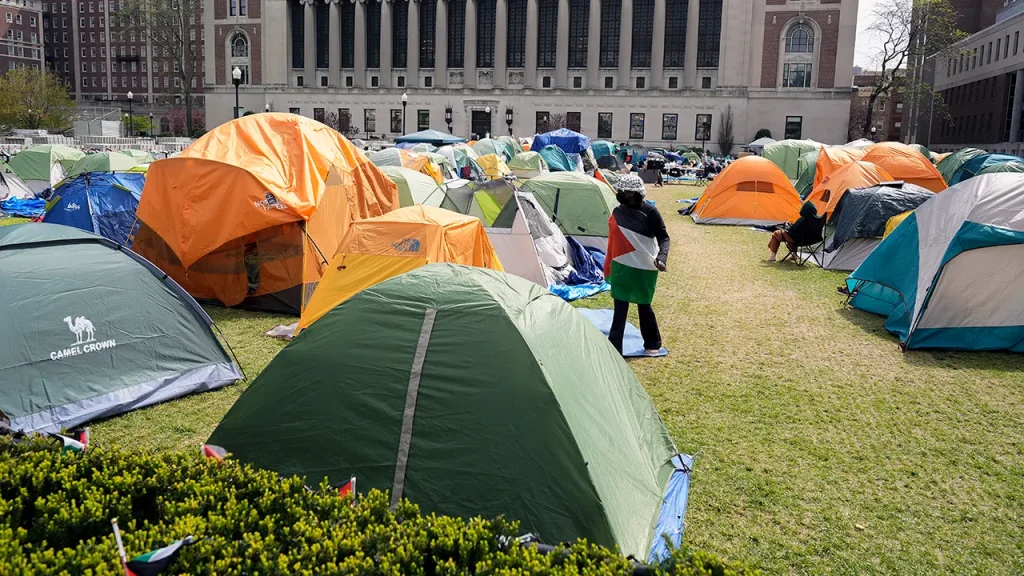Columbia University recently settled with a Jewish student following allegations of harassment and intimidation on campus. The student claimed that extreme elements within on-campus Gaza war protests had forced Jewish students, among others, off campus. The lawsuit filed in April stated that Columbia shifted to hybrid learning, allowing extreme demonstrators full use of university grounds while Jewish students felt unsafe staying home. In response to the settlement, Columbia reiterated its commitment to the safety of all students to pursue education and meet academic goals.
As part of the settlement, Columbia agreed to create a Safe Passage Liaison to address student safety concerns and coordinate escort requests through an existing program available 24/7 until at least Dec. 31. The agreement also includes academic accommodations for students unable to access the campus to complete assignments or exams. Additionally, another anti-Israel encampment appeared on Columbia’s campus, consisting of seven tents and between 25 to 60 people. This comes amid heightened anti-Israeli demonstrations at U.S. universities following recent events in Gaza, leading to concerns about antisemitism and student safety.
A legal group representing anti-Israel students has called on the U.S. Department of Education’s civil rights office to investigate Columbia’s compliance with the Civil Rights Act of 1964 regarding how students have been treated. In a separate incident, police had to be called to clear out agitators who took over a building on campus, highlighting the escalating tensions on college campuses. The increase in anti-Israel protests has coincided with antisemitic incidents at many schools, including Columbia University, leaving Jewish students feeling unsafe. The university had previously received a “D” grade for its response to campus antisemitism from the Anti-Defamation League in January, indicating ongoing challenges in addressing these issues.
The settlement with the Jewish student reflects Columbia’s efforts to improve campus safety and address concerns raised by students. By creating a Safe Passage Liaison and implementing academic accommodations for students unable to access the campus, the university aims to support the entire student body in pursuing their education. The presence of anti-Israel encampments on campus and calls for investigations into civil rights compliance underscore the complex challenges faced by universities in navigating political and social tensions. Moving forward, Columbia and other institutions will need to continue addressing issues of antisemitism, student safety, and free expression on campus to create a conducive environment for all students.
Overall, the recent settlement between Columbia University and the Jewish student marks a step towards addressing concerns of harassment and intimidation on campus. As the university works to ensure the safety of all students and create mechanisms for support and accommodation, ongoing anti-Israel protests and antisemitic incidents continue to pose challenges for campuses across the United States. By actively engaging with these issues and promoting dialogue and understanding, universities like Columbia can strive to uphold principles of inclusivity, academic freedom, and student safety amidst complex sociopolitical dynamics.


